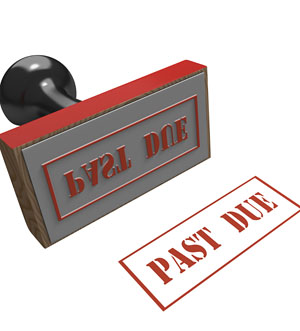
Debt collection
Shutterstock [http://www.shutterstock.com]
Pretoria - When debt gets out of hand, when the demands overwhelm you, you may find that a debt collector comes calling.
This can be frightening, which is why it’s as well to be prepared. Know your rights and understand the process, and you will be able to handle it much better.
The collection of debts falls under the aegis of the National Debt Collection Act 114 of 1998. The company, organisation or individual to whom you owe money may hand over the debt to an attorney; a person who is an agent of an attorney; or a registered debt collector to collect on their behalf, the capital amount owed, as well as interest legally due, and, of course, the debt collector’s fee. This fee is set by the National Council for Debt Collectors.
It’s worth noting that if the person who approaches you is not an attorney or the agent of an attorney, but rather a debt collector, they must be registered with the Council for Debt Collectors.
The Council has a code of conduct on their website in terms of which a debt collector must treat you with respect – the wording says they must “have due regard for the person, the property and the civil rights of a debtor, and shall ensure that any action taken against a debtor does not humiliate, threaten or cause distress to such a debtor”.
The debt collector may not, among other things:
* Collect more than the capital, interest and fees
* Intimidate, force or threaten you – for example, by telling you that legal proceedings will be instituted when there’s no intention of doing so
* Use forms of communication (such as letters) which look like legal or judicial communications (debt collectors have been known to send something that looks like a notice of a court action, for instance)
* Use “obscene, defamatory or threatening language when communicating with a debtor or persons related to him”
* Harass or embarrass you – it’s worth noting that debt collectors are specifically forbidden to call on you, by phone or in person, on a Sunday or between nine in the evening and six the next morning
* Threaten you that they’ll communicate with your employer, which they may not do before a final judgement has been obtained (although they may contact your employer purely to verify your employment status or earnings)
It’s worth going to the website and familiarising yourself with the Code of Conduct if there’s any likelihood you’ll be dealing with a debt collector any time soon.
If a debt collector violates the Code of Conduct, you can make a complaint to the Council, which is under an obligation to investigate any such charge. You’ll find the procedure on the Council’s website.
This can be frightening, which is why it’s as well to be prepared. Know your rights and understand the process, and you will be able to handle it much better.
The collection of debts falls under the aegis of the National Debt Collection Act 114 of 1998. The company, organisation or individual to whom you owe money may hand over the debt to an attorney; a person who is an agent of an attorney; or a registered debt collector to collect on their behalf, the capital amount owed, as well as interest legally due, and, of course, the debt collector’s fee. This fee is set by the National Council for Debt Collectors.
It’s worth noting that if the person who approaches you is not an attorney or the agent of an attorney, but rather a debt collector, they must be registered with the Council for Debt Collectors.
The Council has a code of conduct on their website in terms of which a debt collector must treat you with respect – the wording says they must “have due regard for the person, the property and the civil rights of a debtor, and shall ensure that any action taken against a debtor does not humiliate, threaten or cause distress to such a debtor”.
The debt collector may not, among other things:
* Collect more than the capital, interest and fees
* Intimidate, force or threaten you – for example, by telling you that legal proceedings will be instituted when there’s no intention of doing so
* Use forms of communication (such as letters) which look like legal or judicial communications (debt collectors have been known to send something that looks like a notice of a court action, for instance)
* Use “obscene, defamatory or threatening language when communicating with a debtor or persons related to him”
* Harass or embarrass you – it’s worth noting that debt collectors are specifically forbidden to call on you, by phone or in person, on a Sunday or between nine in the evening and six the next morning
* Threaten you that they’ll communicate with your employer, which they may not do before a final judgement has been obtained (although they may contact your employer purely to verify your employment status or earnings)
It’s worth going to the website and familiarising yourself with the Code of Conduct if there’s any likelihood you’ll be dealing with a debt collector any time soon.
If a debt collector violates the Code of Conduct, you can make a complaint to the Council, which is under an obligation to investigate any such charge. You’ll find the procedure on the Council’s website.




 Publications
Publications
 Partners
Partners










